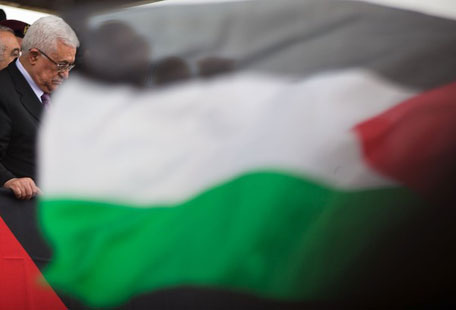Strategic Similarities, Tactical Differences

The current changes in Palestine should be studies within a broader context, which is the Arab Spring and people’s power ousting age-old dictators. The Arab World has undergone three transformational waves in its contemporary history: the first one created in the wake of the First World War and resulted in the independence of Arab nations, who had been living under the reign of the Ottomans for centuries. A public demand lied behind the independence of the Arab countries: the Ottoman government was not an ideal for them. WWI facilitated the birth of. If there were not any social and popular grounds, no external force could make this breakthrough. The main stimulus for the Arab nations during this era was the anti-colonial motives: they did not like being under the yoke of Ottomans.
The second wave, which was ethnicity-based, was generated as a response to the formation of the state of Israel in 1948. Despite Islamists’ collaboration with Gamal Abdel Nasser, in the anti-Zionist campaign, the element of pan-Arabism was more powerful. Islamists came to the foreground after the victory of Iran's 1979 Islamic Revolution.
The third wave of the changes in the Arab world is of a different nature: the citizens’ rights vis-à-vis the government are now the focal point, for which the recent popular movements in the Arab ME and Northern Africa are fine examples. This wave conceived following the successive failures Arab countries against Israel and oppressions citizens had to suffer undeer the pretext of ant-colonialist and anti-Zionist campaigns.
The Palestine’s situation is different. It is a bipolar situation: the question is what caused some Palestinians to support the Resistance and some to advocate negotiations. Why did Yasser Arafat sought peace after years of armed resistance and reject the Resistance for the sake of peace?
It is noteworthy that all Palestinians –whether supporting the Resistance or negotiations- have one belief in common: the entire land of Palestine –spanning from the Mediterranean Sea to the River Jordan- belongs to the Palestinians and should return to them. However, Palestinians also want to live their lives peacefully. In his memoir, the late Yasser Arafat wrote: “I fought in Jordan, Lebanon, Tunisia and other countries, but I found no way but peace.” The Palestinians supporting peace say that the reality cannot be ignored: certainly if Arabs and Muslims had the ability to redeem the entire Palestine, there would be no objection among the Palestinians.
The viewpoint that the Palestinian National Authority considers the Resistance less important is inaccurate, as neither Fatah nor Hamas has issues with Resistance, what they differ in is their understanding of the circumstances: while they hold different positions: I remember speaking to Faisal Husseini, who accounted Yasser Arafat’s invitation of Fatah’s jihadi groups to gather in Ramallah to discuss the movement’s future strategies. Husseini remembered Arafat calling the attendees to stop armed operations, while his hands made a different gesture, signaling them to continue their operations.
In the current situation, Palestine’s statehood bid has made the issue more complicated: the calls for unity in Gaza, followed by Palestinians in Ramallah, accompanied by the pressures exerted by independent Palestinian groups, ultimately forced the Palestinian leaders to agree to unity. Their decision soothed the atmosphere. Fatah and Hamas meanwhile took advantage of Egypt’s new situation and concluded an agreement called National Reconciliation.
The Palestinian groups have complied with the agreement so far. In the Palestine Conference hosted by Tehran, Khaled Mash’al proved his commitment to the agreement in his speech. Although separate entities, Fatah and Hemas have a division of labor between themselves in this regard: Mahmoud Abbas with his support base set in Cairo could demand Palestine’s membership in the UN -an issue which is supported by all of the Palestinians- but Hamas adheres to its own strategy.
Some points should be mentioned with regard to Abbas’ UN speech: he took this measure exactly when he had the support of an absolute majority in the UN. This means recognition of Palestine is actually approved. Fatah could not have made this achievement had Resistance made objections.

